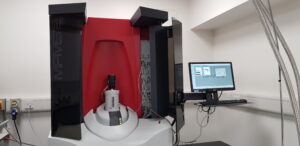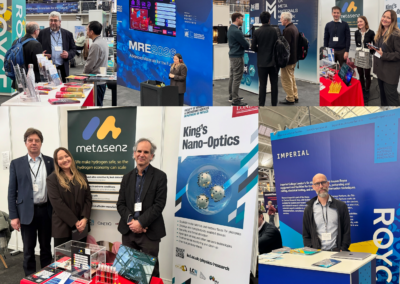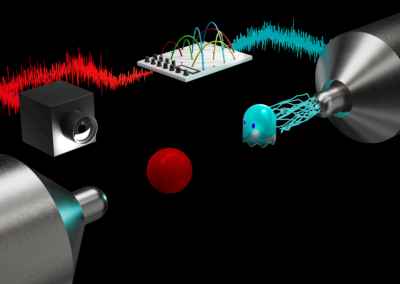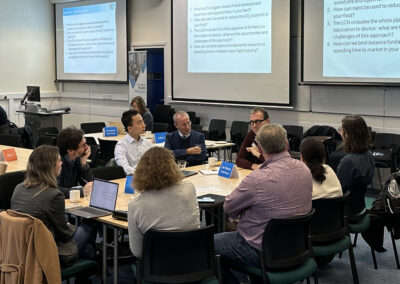LCN Professor Sandrine Heutz has been awarded £2 million from the EPSRC to fund a new state-of-the-art hub of magnetic characterisation SPIN lab in the Department of Materials at Imperial College London. The facility includes equipment for the study of strongly coupled and isolated spins. The combination of techniques is unique and offers the possibility of gaining insights into the fundamental properties but also prospective applications of the materials.
The main characterisation techniques provided by the hub are Magnetic Property Measurement System (MPMS) based on Superconducting Quantum Interference Device (SQUID) technology, Electron Paramagnetic Resonance (EPR) and Hall effect system.

Users can use the MPMS which is a very sensitive magnetometer that integrates a SQUID detection system and can resolve ultra-low magnetic fields down to 10-8 emu. MPMS system in the SPIN-Lab enables highly sensitive magnetic measurements under variable conditions which makes it unique in the UK. Its large temperature capabilities, from 1.8 K up to 1000 K under magnetic fields of up to 7 T offers a wide range of research possibilities mainly in the field of electronic materials, energy and bio-health.
The EPR is a spectroscopic technique which probes the environment of unpaired electron in materials. From the interaction between unpaired electron and surrounding nuclei quantitative and structural information about the material can be obtained. It is particularly useful for studying metal complexes or organic radicals. With the system available in the SPIN-Lab, measurements can be performed down to low temperature (3.8 K). The continuous-wave (CW) operation enables high sensitivity down to 1.0 x 109 spins. Additionally, the system has optical access and Nd:YAG laser for broadband operation, between 410 and 2550 nm. The combination of EPR system and laser enable the study of transient phenomena.
The Hall effect measurement system gives information about the mobility, charge carriers concentration and resistivity of materials. The system available in the SPIN-Lab enables the measurement of mobilities to 0.001 cm2/V s with temperature range from 4 K up to 1230 K. This provides insight into fundamental mechanisms of charge transport in a wide variety of semiconducting materials and applications types, including organics, oxides (e.g. for batteries) and carbon nanotubes.
SPIN-Lab offers the possibility for a high-quality research in a wide range of fields and topics, e.g. transition metal chemistry applied to catalysis, water splitting, fundamental studies of photosynthetic processes etc.; solid state quantum phenomena, such as those involved in Masers or quantum computing; fundamental processes in photovoltaic systems, e.g. triplet dynamics; free radicals or charges generated in devices such as batteries.
For more details the Facility Manager, Dr. Irena Nevjestic, can be contacted at [email protected]



